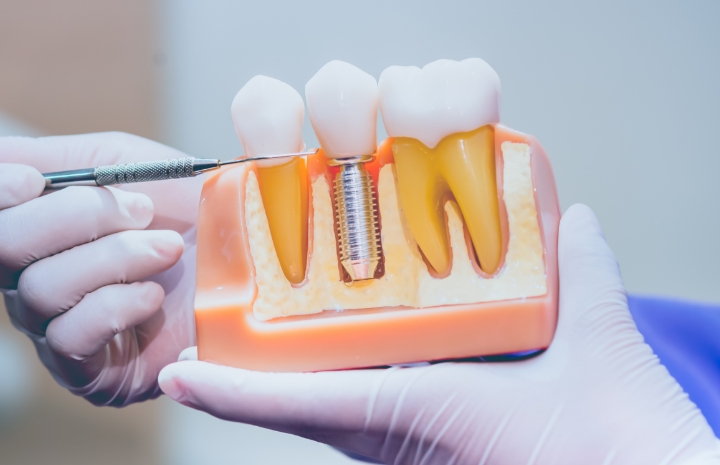Dental Implant Failure & Salvage – Denton, TX
What to Do About Loose or Broken Dental Implants
Compared to other tooth replacement methods, dental implants are by far the most successful and capable of lasting the longest. Even though your odds of experiencing a failed dental implant are extremely low, they aren’t zero. In the rare circumstances where your dental implant begins to fail, please call our dental team at Southridge Dental Family & Cosmetic Dentistry right away. If you’re able to see Dr. Dunson quickly enough, he may be able to rescue your replacement teeth with dental implant salvage. Keep reading to learn more about dental implant failure and salvage at our Denton, TX dental office.
Why Choose Southridge Dental Family & Cosmetic Dentistry for Implant Failure & Salvage?
- Experienced, Loyal Dental Team
- Sedation Available for Anxious Patients
- Comfortable, Modern Dental Office
Why Do Dental Implants Fail?

Dental implant failure can occur at any point after having the posts surgically placed. In the short term, the jawbone might be unable to merge with the implants. This process, called osseointegration, can take up to six months, and if the implants have not become attached to the jawbone by that point, they’ll need to be removed. Osseointegration can fail for a variety of reasons, such as tobacco use, certain medical conditions, and physical trauma to the face, jaw, or mouth.
The most common reason why dental implants might fail, though, is gum disease. Specifically, an infection of the gums surrounding the implant. This condition, known as peri-implantitis, often develops as a result of poor oral hygiene and can occur several months, years, or even decades after dental implant placement. When the gum tissue that supports the implant becomes inflamed and damaged, it may no longer be able to keep the post in place, causing it to fail.
Signs of a Failed Dental Implant

No matter how long it has been since you received dental implants in Denton, you should contact our dental office if you experience any of the following symptoms of dental implant failure:
- Discomfort or pain around your dental implants
- Difficulty chewing food with the dental implants
- Swelling, bleeding, redness, or pus in that area of your mouth
- Persistent bad taste in your mouth or bad breath
- Feeling as if your implant has “come loose”
How Dental Implant Salvage Works

If Dr. Dunson can catch the issue early enough, he may be able to treat it without needing to remove the dental implant. For example, if your dental implant feels “loose,” it might be a problem with the restoration on top of it rather than the dental implant itself. If you’re dealing with a gum infection, we might be able to address it with a deep cleaning. In some situations, the only solution is to remove the dental implant and give you time to heal before starting the tooth replacement process over again.

